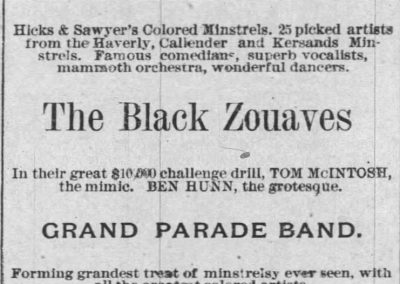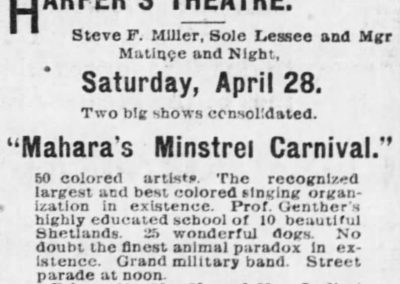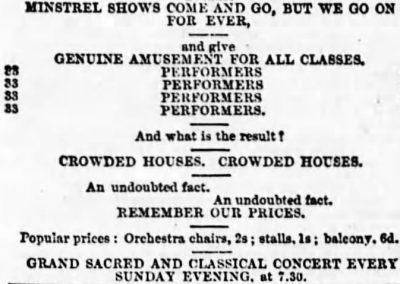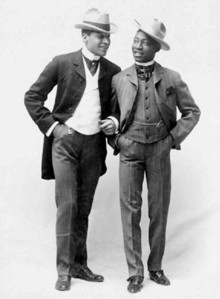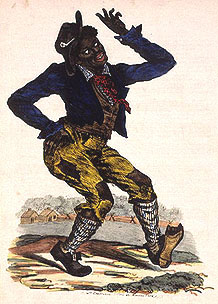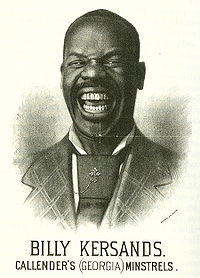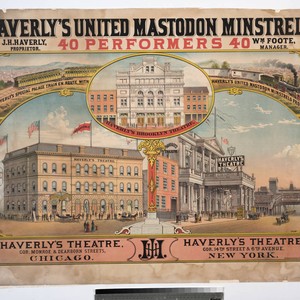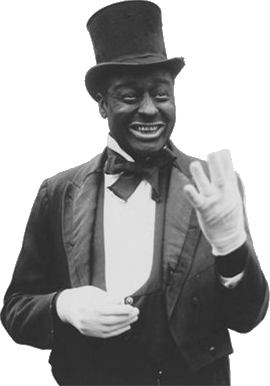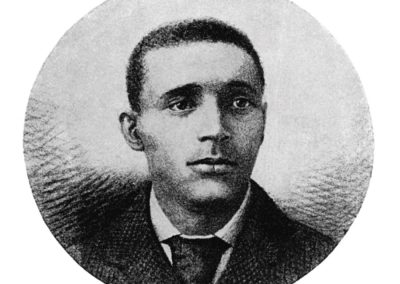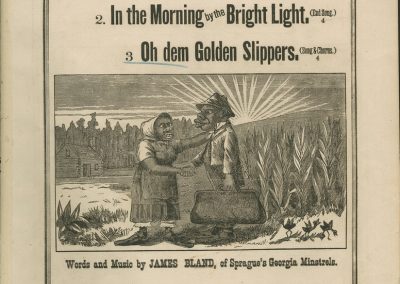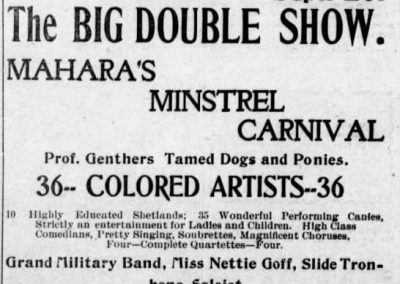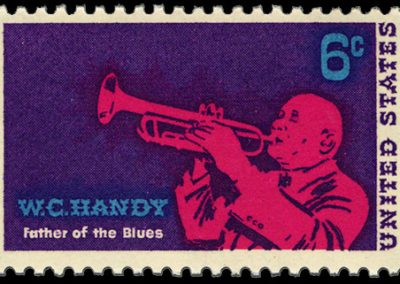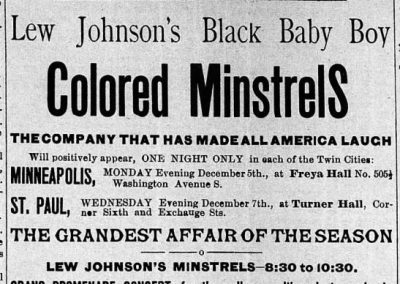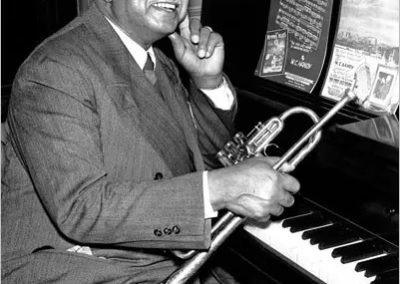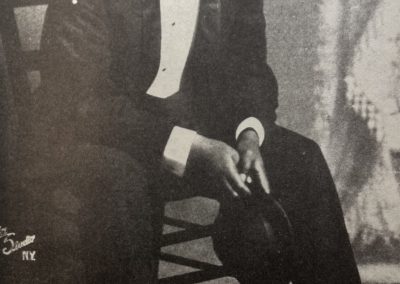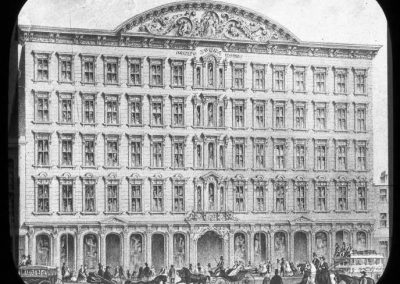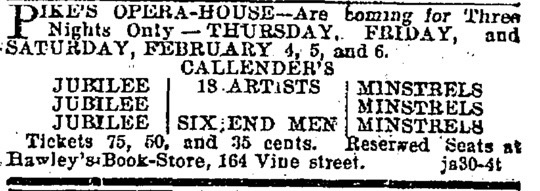Media Gallery
Content Warning: This webpage includes readings, media, and discussion around topics of racism, blackface, racial violence, racial stereotypes, racial slurs and other racist traditions. We acknowledge that this content may be difficult. We also encourage you to care for your safety and well-being.
It’s well documented that minstrelsy (and its horrible racism) has been absorbed into American media. As part of our project, we wanted to explore the music performed by Black minstrel troupes, and examine the reach of these songs today. Surprisingly, many of these minstrel songs are widely available but include no acknowledgment of their origins in minstrelsy.
The vision behind the playlist below is to include two recordings of every song– all of which were included in minstrel shows. The first song is the oldest recording, the closest possible to the original style. The second is a popular version, often by familiar artists. See, for example, Sesame Street’s version of In The Evening by the Moonlight, which was composed by Black Minstrel composer James Bland.
Interestingly, many of these minstrel songs are now branded as “Jazz Classics” or “Bluegrass Hits.” It’s striking how minstrelsy continues to be present in our modern lives. It might be worthwhile to look further into which songs evolved into jazz standards vs bluegrass hits, and how they got there.
Audio
Should we engage with Black minstrel songs? Who should perform this music?
These questions have come up countless times while researching media for this project. Many minstrel songs are so ingrained in our American tradition that it’s futile to request that performances be stopped. And others, while more obscure, have had their minstrel origins erased or concealed by the passage of time. What seems the most important is the acknowledgment of the impact and legacy of minstrelsy, which can only be possible with education about this tradition.
Most of these former minstrel songs are recorded by white artists, with the exception of Don Shirley, who released “Carry Me Back to Old Virginny” as a jazz standard.

Some artists, like Rhiannon Giddens, are working towards reclaiming these old minstrel songs. Giddens’s project, which culminates in an album called “Songs of Our Native Daughters,” takes old minstrel songs and changes the lyrics to reflect the perspectives of the black people performing them.
Here you’ll see lyrics to an old minstrel song called “Wake up in De Mornin’.” They are horribly offensive.
The next set of lyrics was written by Rhiannon Giddens and her group. They titled this song “Better Git Yer Learnin’” Here is also a video of this song.
When I was just a little thing
I almost learned from Cousin Nick
Ol’ Massah found out, sure enough
And poor old Nick, he got strung up
Better git yer learnin’
Better git yer learnin’
Better git yer learnin’
Before it goes away
The year was 1863
The paper said that I was free
But no one read it to my ears
And so I slaved for two more years
Better git yer learnin’
Better git yer learnin’
Better git yer learnin’
Before it goes away
A teacher came from Ohio
To learn us what we need to know
Before she told us what was what
She up and died of Whooping Cough
Better git yer learnin’
Better git yer learnin’
Better git yer learnin’
Before it goes away
I heard about a school was free
Way out east in Tennessee
Before I got to go to town
The damned old reds had burned it down
Better git yer learnin’
Better git yer learnin’
Better git yer learnin’
Before it goes away
So now that I am old and gray
Listen close to what I say
The white folks, they will write the show
If you can’t read, you’ll never know
Better git yer learnin’
Better git yer learnin’
Better git yer learnin’
Before it goes away
Better git yer learnin’
Better git yer learnin’
Better git yer learnin’
Before it goes away
Photo Gallery
Here is a photo gallery with pictures of relevant artists, troupes, newspaper clippings, and significant images. All newspaper clippings were taken from newspapers.com.
Pikes Opera House
Pikes Opera House in Cincinnati Ohio, where Callender’s Georgia Minstrels performed on February 4th, 5th, and 6th in 1875
